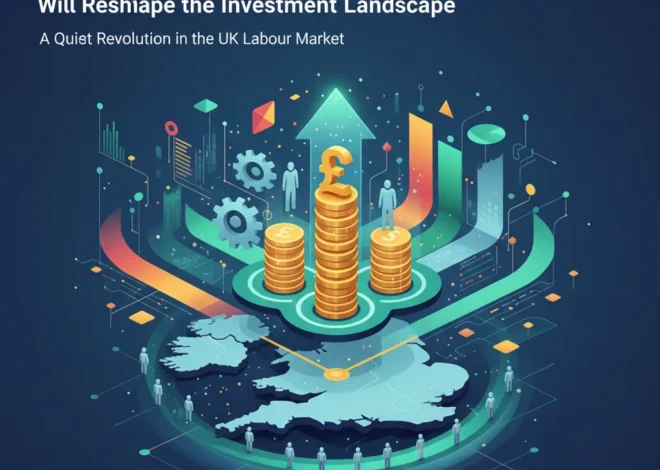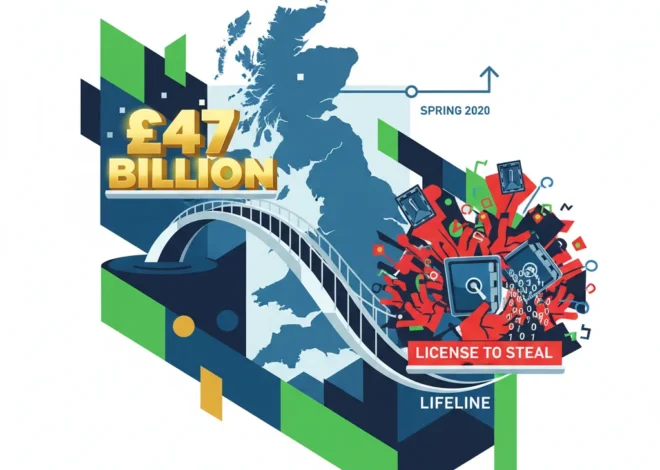
The Watchdogs Are Recalled: Why the Fed’s Staff Cuts Could Reshape the Future of Banking
A Ghost from the Past: Are We Forgetting the Lessons of 2008?
It’s a memory that still sends a chill down the spine of the global economy: the collapse of Lehman Brothers, the frantic bailouts, and the precipice of a complete financial meltdown in 2008. In the aftermath, a consensus emerged. We needed stronger guardrails, more vigilant oversight, and robust regulations to prevent the banking sector from ever again holding the world hostage. The Dodd-Frank Act and a newly empowered class of federal supervisors were the answer—the watchdogs tasked with pacing the walls of our financial system.
Now, in a move that has sent ripples through the worlds of finance and policy, the Federal Reserve is planning a significant reduction in its banking supervision staff. According to a proposal reported by the Financial Times, this decision is a direct reflection of the Trump administration’s broader push to deregulate the financial industry. While framed as an efficiency measure, this reduction in force is anything but a simple administrative shuffle. It is a profound policy statement that questions the very foundations of post-crisis financial oversight and carries significant implications for investors, business leaders, and the stability of the entire economic system.
Deconstructing the Proposal: More Than Just a Headcount Reduction
At first glance, a reduction in federal staff might sound like a standard bureaucratic adjustment. However, the roles these individuals play are critical to the health of the financial system. The Fed’s supervisors are the front-line troops in the battle against systemic risk. They are the experts who conduct the now-famous “stress tests,” complex simulations designed to see if a bank could withstand a severe economic shock. They pour over balance sheets, assess lending standards, and ensure compliance with a labyrinth of rules designed to protect both consumers and the broader economy.
The proposal to cut these teams is part of a larger philosophical shift. The prevailing argument from proponents of deregulation is that the post-2008 rules, while well-intentioned, have stifled economic growth. They contend that these regulations place an undue burden on banks—especially smaller community institutions—restricting their ability to lend and, by extension, slowing down business investment and expansion. From this perspective, reducing the number of supervisors is a logical step in “unleashing” the financial sector to do what it does best: allocate capital and fuel the economy.
However, critics see this move through a much darker lens. They argue that a decade is far too short a time to forget the catastrophic consequences of lax oversight. The 2008 crisis was fueled by complex financial instruments, predatory lending, and a system where the watchdogs were either outmatched or looking the other way. To them, cutting the number of supervisors is akin to firing the lifeguards at a crowded beach just because no one has drowned recently. The risk doesn’t disappear; it simply goes unwatched.
India's Banking Sector Lands Record Foreign Investment: A New Era for the Global Economy?
The Ripple Effect: What This Means for Your Portfolio and the Economy
A policy change within the Federal Reserve isn’t an abstract event; it has tangible consequences that will cascade across the financial landscape. Understanding these potential impacts is crucial for anyone involved in investing, running a business, or simply planning for their financial future.
Implications for Investors and the Stock Market
For investors, this news presents a complex duality. In the short term, bank stocks may rally. Less regulatory compliance means lower overhead costs and potentially higher profits for financial institutions, which can make their shares more attractive. The prospect of looser lending standards could also signal a boost for the broader stock market, as more capital flows into the economy.
However, the long-term picture is fraught with peril. A less supervised banking sector is inherently a riskier one. This increased risk isn’t always immediately apparent; it can build up slowly in the system, hidden in complex derivatives or over-leveraged loan portfolios. For long-term investors, the potential for greater market volatility and the increased “tail risk” of another financial crisis must be weighed against any short-term gains. The fundamental stability of the financial system is the bedrock upon which all investing is built; weakening that foundation is a dangerous game.
The Two Sides of the Deregulation Coin
To provide a clearer picture, let’s break down the core arguments for and against the kind of financial deregulation this move represents.
| Core Principle | Argument for Deregulation (The “Growth” Perspective) | Argument for Strong Regulation (The “Stability” Perspective) |
|---|---|---|
| Economic Growth | Reduces compliance costs for banks, freeing up capital for lending to businesses and consumers, thereby stimulating the economy. | Prevents the formation of asset bubbles and systemic risks that can lead to catastrophic recessions, which destroy far more value than regulation costs. |
| Financial Innovation | Allows for more rapid innovation in financial products and services, including fintech, by removing bureaucratic hurdles. | Ensures new innovations are introduced safely and don’t create unforeseen systemic risks. A financial system collapse stifles all innovation. |
| Market Efficiency | Believes that the market is the most efficient allocator of capital and that regulatory interference distorts this natural process. | Corrects for market failures like “moral hazard,” where institutions take on excessive risk knowing they might be bailed out. |
| Consumer Impact | Could lead to easier access to credit and loans for individuals and small businesses. | Protects consumers from predatory lending practices and ensures the safety and soundness of the institutions holding their deposits. (source) |
India's Trillion-Dollar Banking Bet: Why a Record Foreign Investment Signals a New Economic Era
The Future of Fintech and Banking Competition
This regulatory shift also has fascinating implications for the burgeoning financial technology sector. On one hand, less stringent oversight of traditional banks could make it harder for fintech startups to compete on a level playing field. If big banks are unshackled, they can move more aggressively into spaces previously dominated by agile startups.
On the other hand, a crisis of confidence in the traditional banking system could accelerate the adoption of decentralized finance (DeFi) and blockchain-based solutions. If the public perceives mainstream banks as taking on excessive risk again, they may increasingly look to alternative systems that promise greater transparency and control. This regulatory pullback could inadvertently become a catalyst for the very disruption the established players have long feared.
Balancing Growth and Stability: A Perilous Tightrope Walk
The decision to reduce the number of federal banking supervisors is not a minor tweak. It is a significant step in reversing the post-2008 regulatory framework. The U.S. financial system has seen a period of relative stability and strength in the decade since the crisis, with banks holding significantly more capital than they did before 2008, as noted by numerous global stability reports. This strength was built on the back of the very regulations and supervisory rigor that are now being questioned.
The core of the issue is a timeless debate in economics: how do you balance the drive for growth with the need for stability? Pushing the accelerator to the floor can win the race in the short term, but it dramatically increases the odds of a devastating crash. The proposal by the Federal Reserve suggests a willingness to accept more risk in pursuit of higher economic growth.
As investors, professionals, and citizens, the question we must ask is whether the potential rewards are worth that risk. Have we truly learned the lessons from our recent past, or are we doomed to repeat them? The departure of the watchdogs from the walls of our financial system means that, for better or worse, we are about to find out.
Echoes of 1929: Is Today's Tech Boom a Modern-Day Tale of "Shiny Toy Hubris"?


